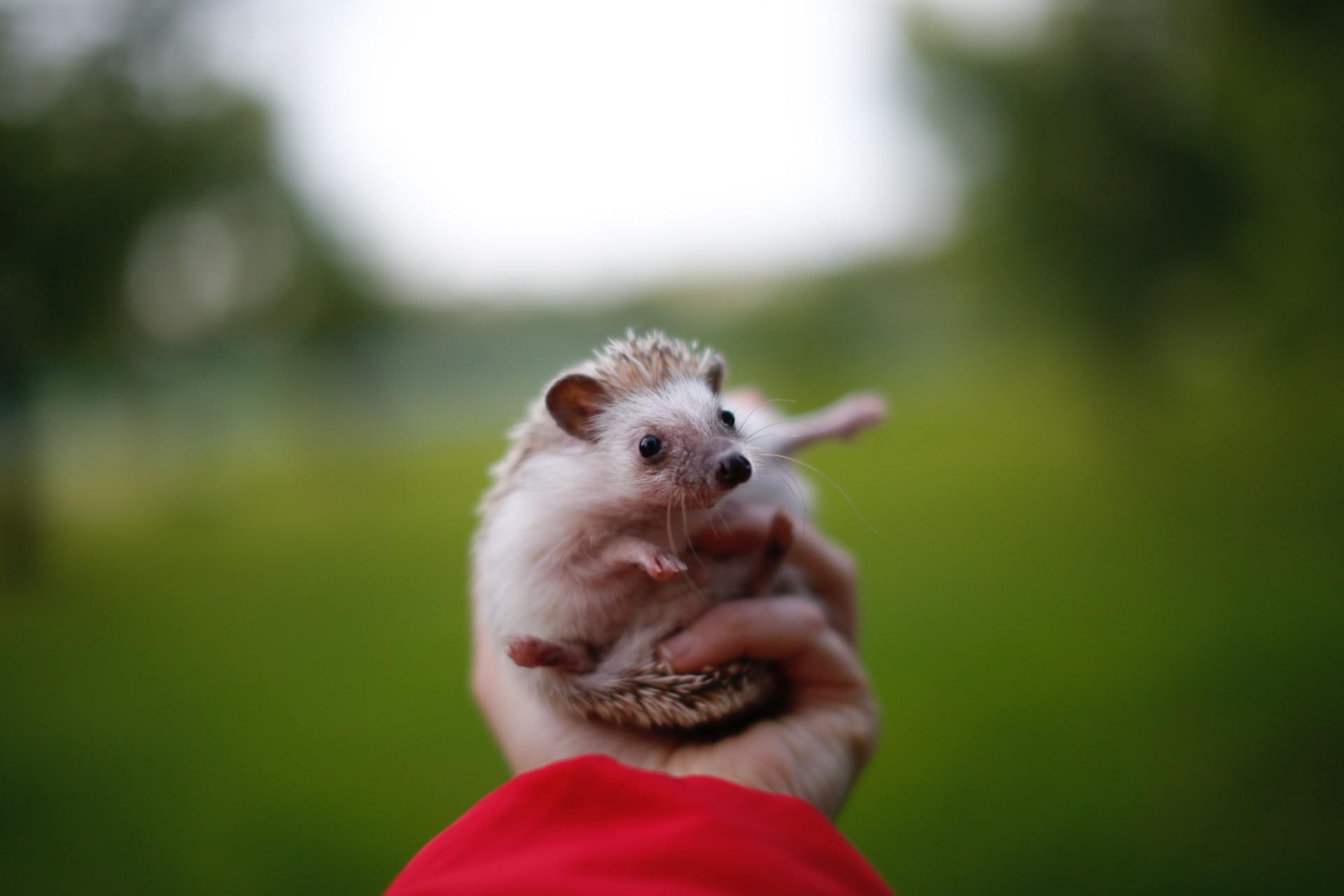Caring For Senior Kitties
As our feline companions enter their golden years, their needs evolve in ways that require special attention and care. Caring for a senior cat involves more than just the basics of food and shelter; it means understanding the subtle changes in their health, behavior, and comfort levels. Senior cats, typically those aged seven and above, may face challenges like decreased mobility, dental issues, and altered dietary needs. According to veterinarians, proactive care during this stage can significantly enhance their quality of life and even extend their lifespan. In this article, we’ll explore the essential aspects of caring for senior kitties, offering evidence-based advice to help you navigate this rewarding phase of pet ownership. From recognizing signs of aging to implementing supportive routines, understanding how to properly care for your aging feline friend is crucial for their well-being and your continued companionship.
Have you observed your feline buddy’s activity level decreasing recently? Cats are adorable and sweet during their lives, but they get even more adorable as they age. Fluffy generally ages gracefully. You may note that she has grown super affectionate, and that she (somehow) sleeps even more than before. Cats are independent and easy to care for; however, as they get older, they will need more attention. A Fort Myers, FL offers tips on caring for a furry, meowing senior in this article.
When Do Cats Get Old?
The American Association of Feline Practitioners says Fluffy retires at ten. Other sources, though, say that age is nine. Some people think that cats are officially furry little seniors when they’re seven years old. There is a reason for these differences. A seven-year-old cat is roughly comparable to a person who is 45 years old. That’s around the threshold of middle age for people.
Some people are confused by the difference between cat years and human years. You may have heard that one year of human life is equivalent to seven years of cat life. That’s not quite right. For instance, Fluffy’s first year is about equivalent to 10–12 human years. The second one will bring your feline companion up to the age that is equivalent to twenty-four years for a human being. After that, the comparisons become a bit closer to the seven-year rule.
By the time Fluffy reaches around 11 years old, she’s considered a senior cat, and at 15, she’s classified as geriatric. While your eleven-year-old cat might still have a playful streak, caring for a senior cat involves giving her extra attention, including potentially more frequent veterinary visits. This helps monitor her health more closely, ensuring any age-related issues are caught early and managed effectively.
What Are Some Of The Most Common Health Problems Aged Cats Have?
Certain health problems are more likely to arise in cats that are approaching their golden years. Some examples are cancer, diabetes, arthritis, hyperactivity, problems with the eyes or teeth, and diabetes.
In the time between veterinary clinic visits, look for any signs that your pet might be sick. Keep in mind that cats are naturally shy about this. Fluffy might try to hide how ill she is until she really gets sick!
Here are some common symptoms:
- Vomiting
- Diarrhea
- Respiratory Issues
- Fever
- Lethargy
- Stumbling
- Changes In Appetite
- Increased/Decreased Thirst
- Increased/Decreased Urination
- Withdrawal
- Uncharacteristic Behavior Or Vocalizations
- Discharge
- Limping
- Lesions, Lumps, Bumps
- Skin Irritation
- Hair Loss
- Appetite changes
- Increased Or Decreased Thirst/Urination
Kitties with messy fur are often thought to be sick. However, it is normal for older cats to look a little disheveled, because they often have trouble cleaning themselves. Older cats may be stiff and sore, which makes it hard for them to bend and stretch. Furthermore, the skin of older cats produces a lot of oil.
That said, if you notice anything odd, call your vet right away.
How Much Care Do Senior Cats Need?
Your feline friend will mostly need the same things as any other kitty: good food, clean water, a litter box, and, of course, frequent visits to the vet. But you should start making small changes.
Proper nutrition plays a vital role in caring for a senior cat. Consult your veterinarian to determine when to transition your pet to a senior-specific formula, as older cats often have unique dietary needs. Your cat may require adjustments in portion sizes or a switch from kibble to canned food, depending on their health and preferences. Monitoring their weight is also important to avoid obesity, which can lead to various health issues. Regularly reviewing their diet helps ensure your senior cat maintains a healthy and balanced lifestyle.
Make sure your furball has access to clean water at all times. Start keeping an eye on how much water Fluffy drinks. One way to do this is to always fill her bowls at the same time. You might want to put out more water dishes if your house is big or has more than one floor, especially in the summer.
Cats need a clean litterbox. This should be somewhere your kitty can easily get to. If you have more than one story, put extras on every floor.
Then there’s veterinary care. As she gets older, your feline friend may need to come in more often. Ask your vet to recommend an appointment schedule.
What Can I Do To Make My Home A More Comfortable Space For My Older Cat?
Kitties are quite easy to care for, and it does not take much to make them happy. Small things can make a big difference when it comes to taking care of an older cat. For instance, Fluffy will never get tired of her cute box obsession, and she’ll still love lying in the sun.
Here are some more things that will make your furry buddy purr:
Window Seats
We always suggest keeping Fluffy inside. Of course, she will still need to be entertained. Our feline friends like to spend their free time watching birds. You may find Fluffy sleeping, sunbathing, and watching birds and mice for hours on end. Give your animal friend a nice, comfy seat by the window. A storage bench or ottoman can work well for this. Cover it with a pretty blanket that goes with your room’s style. Or, put a kitty bed on it. Instant purr!
Get Nightlights
Like people, kitties can have trouble seeing as they get older. Fluffy might have problems getting around in the dark at night. Set out some little nightlights for her.
Pet Ramps
Your feline friend will not be able to climb or jump as high as she used to. Along with that, she might become less coordinated, which would make her more likely to trip and fall. Set up pet stairs or ramps so she can get to her favorite spots on couches and beds.
A Lot Of Beds
Older kitties can sleep for up to twenty hours a day. Fluffy had to practice for years to be able to sleep that much. Make sure your furball has lots of places to sleep and beds to choose from.
Senior Litterbox
Senior cats may struggle with high-walled litter boxes, making it difficult for them to use comfortably. When caring for a senior cat, choose a litter box designed specifically for older cats with lower entry points to ease access. Placing a litter box on each floor of your home can also help, ensuring your senior cat doesn’t have to navigate stairs or search too far when nature calls. This setup minimizes stress and supports their changing needs.
How Can I Keep My Senior Kitty Content?
Senior cats, like kittens, require fun and excitement. Playing is very important here. She might not be as wild as she used to be, but your feline buddy friend will still love showing off her lion skills occasionally. This will also help your kitty stay healthy. Plus it’s good for her brain! Like people, feline seniors can lose some of their mental capacity as they get older. playing might also help with that. Kittens need to keep their eyes on that small red dot in order to land their jumps properly. Leaving the radio on can provide stimulation and enrichment.
Other than that, just pay close attention to your furry friend. Play with her, talk to her, and let her curl up on your lap. Last but not least, make sure Fluffy knows you love and care for her. Senior cats’ purrs are very special!
Caring for a Senior Cat in 2025: Assessing Your Cat’s Quality of Life
How can owners assess their cat’s quality of life?
Owners can assess their cat’s quality of life by observing physical health, behavior, and overall comfort. Watch for signs of illness like changes in appetite, increased or decreased thirst, lethargy, or unusual vocalizations. Monitor grooming habits; older cats may appear disheveled if they have trouble cleaning themselves due to stiffness or soreness. Evaluate mobility by noting any difficulty in jumping or climbing, and consider providing pet ramps or stairs. Ensure the cat has access to fresh water, appropriate nutrition, and a clean, easily accessible litter box. Regular veterinary check-ups help detect and manage age-related health issues, contributing to a better quality of life.
How does aging affect cats’ response to medication?
Aging alters cats’ physiology, often leading to changes in how their bodies process medications. Older cats may experience decreased liver and kidney function, affecting the metabolism and elimination of drugs, thereby necessitating adjustments in dosage or the selection of medication. Additionally, age-related conditions like cardiovascular disease or diabetes can influence drug efficacy and safety. Therefore, veterinarians must carefully consider these factors when prescribing medications, emphasizing the importance of regular health assessments to tailor treatments to an aging cat’s specific needs.
How can owners track their cat’s weight effectively?
To effectively monitor a cat’s weight, owners should establish a consistent weekly or biweekly weighing routine. Using the same scale each time ensures accuracy, and it’s best to weigh the cat at a similar time of day for consistency. Recording these weights in a journal or app provides a clear overview of any trends, whether weight loss or gain. Minor fluctuations are normal, but significant changes could indicate health concerns. For cats uncomfortable on scales, weigh yourself while holding the cat, then subtract your weight to obtain an accurate reading.
How can owners monitor dental health?
Owners can monitor a cat’s dental health by regularly checking for signs such as bad breath, drooling, swollen gums, or difficulty eating. Observing any changes in eating habits, like avoiding hard food or chewing on one side, can also indicate discomfort. Examining the mouth for red, inflamed gums or tartar buildup helps detect potential issues early. Regularly brushing the cat’s teeth with feline-safe toothpaste is beneficial, and scheduling professional cleanings and check-ups with a veterinarian can help manage and prevent serious dental issues as the cat ages.
What should a comprehensive senior wellness program include?
A comprehensive senior wellness program for cats should focus on regular veterinary check-ups to monitor for common age-related conditions such as arthritis, diabetes, and dental issues. Nutrition plays a crucial role, so adjusting diets to accommodate older cats’ metabolic needs, including potentially switching to senior-formulated food, is recommended. Accessible living arrangements are important, including easy-to-reach litter boxes and comfortable resting areas. Additionally, maintaining light physical activity and mental stimulation through play can help preserve both physical health and cognitive function. Regular interaction and affection ensure they feel loved and secure as they age.
Set Up A Time To Visit Our Fort Myers, FL Pet Clinic
Do you want to know more about how to take care of older cats? Do not be afraid to get in touch with your Fort Myers, FL veterinary clinic at any time. We are always happy to help!





